|
By Dr Parker Rugeley-Valle  As a clinical supervisor for an ABA company, I provide parent training for families regarding historical information on ASD, current practices, and Applied Behavior Analysis. What I want to say is that many first time parents are silently going through so much emotionally. Parents are not just being a mother or a father for the first time but they are being parents to a child with ASD for the first time. They may not be knowledgeable in appropriate practices and techniques for helping with behavior concerns, hyperactivity, OCD tendencies, or self-stimulation to name a few. They are fearful of how the world will see them and how the world will treat them. Parents are scared to take their kids out in public because of the looks they receive from other adults who do not understand. Parents are scared to put their children in school because they don’t know how educators will treat them. They are fearful of their child being hurt and bullied. I have been in parent training with families who have cried because the emotions are so overfilling. They feel they are alone. They are continuously researching how to better serve their child on the spectrum, how to help them regulate, and how to teach them. No one truly teaches you how to be a parent and no one teaches you how to be a parent to someone on the spectrum. Parents are trying their best and they love unconditionally. I want society to love everyone the same. I want to bring awareness to those who assume the negative stereotypes about children on the spectrum. I want people to be more open-minded, caring, compassionate, and loving. Everyone deserves understanding and love. I love my kids, my clients, and their families. And I love you. 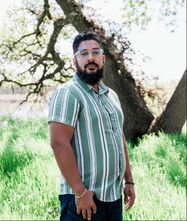 Dr. Parker Rugeley (-Valle) works as a Clinical Supervisor/Parent Trainer for Mylestones Therapy providing therapy to children on the Autism Spectrum and other behavioral challenges. A member of Gamma Zeta Alpha Fraternity, Incorporated, Dr. Parker strives to provide spaces for minoritized groups to congregate and have an open dialogue about issues they face in various environments. In 2018, Parker graduated from California State University, East Bay with a B.A. in Political Science with an option in Pre-Law and a B.S. in Criminal Justice Administration with an option in Justice and Enforcement. In 2020, Parker graduated from his Alma Mater with a Master’s in Public Administration with a concentration in Public Management & Policy Analysis. In December of 2023, Dr. Parker earned his professional doctorate in education at the University of the Pacific concentrating on Transformative Action in Education.
1 Comment
At 24 years old, my life changed. I’d just moved into my first apartment and one night, I was bitten by an insect. Two bumps appeared, eventually one went away. The other grew to the size of a $.50 cent coin. My primary doctor sent me to the ER. There, the bite (turned cyst) was drained and packed. The following months were filled with doctor appointments and trips to the emergency room. Medication after medication was prescribed and risky procedures suggested. Long story short, at 24 my disability journey began. I was never a healthy child, I had the power trio: allergies, asthma, and eczema. I had frequent nose bleeds and a fairly sensitive stomach. Throw in sinus issues and you could only imagine how full my medicine cabinet was. At least one would assume it was full. But, my parents weren’t the best at dealing with health issues. Despite my health issues, I was a good student. I loved to read and often skipped recess to help my teacher grade spelling tests. My school was on a track system so, during breaks I signed up to work with the lower grades. I was in GATE/MCL (shocker, I know you’ve seen those Tiktoks). Let’s just say, I shouldn’t have made it to adulthood without an AuDHD (Autism/ADHD) diagnosis. Unfortunately, that’s not the case. I was 24 when I received my ADHD diagnosis. I didn’t get my Autism diagnosis for another 13 years! Although I knew I had ADHD in 2010, I didn’t start medication and continuous therapy until 2020. My medicine cabinet was becoming less full and I didn’t want to add anything to it. But, in 2019 I noticed that my capability had changed. I couldn’t get by with just coffee and a planner. So, I started working with a therapist. By 2020, I had a great mental health team and ADHD meds. Have you ever gotten an oil change and then your check engine light comes on and the mechanics can’t get an error code on their computer? That's how I like to think of 2021-2023. The Adderall was working, I had my planner, my Google calendar was sending me reminders, but I just couldn’t function. Eventually, I had to have my Adderall, my planner, Google calendar reminders, and alarms on my phone for things like taking a shower and going to work. I decided to take a few tests and self-diagnosed myself. In April 2023, I was formally diagnosed as Autistic. How could I be getting diagnosed at 37?! How could I have possibly missed the signs? How could my parents have missed the signs? To be honest, there weren’t any signs to miss. I am the eldest child and female. I was cooking, cleaning, doing laundry before I turned 11. I was responsible for my younger brother. I was a good student, my teachers rarely had anything concerning to say about me. Home was chaotic, school was the only place that I got a bit of peace. Due to the chaos, I always consistently masked and learned to make accommodations for myself. I had never not worked on my Executive Functioning skills. So, when my norm wasn’t working anymore in 2021, I didn’t know what was happening. It took a year of managing my ADHD (2020 oil change) for my autism to peek through (2021-23 check engine light). Now, a year after my diagnosis, April feels different. It’s always been special, given my work. But, my autism acceptance fluctuates day to day. On one hand, I’m grateful to know the reason for my great skill and struggle in specific areas. On the other hand, I grieve the life my younger self could have had. I find peace in knowing that I got my diagnosis in the right season. I (and all autistic individuals) am wonderfully made despite the personal reminder of acceptance the month of April brings. 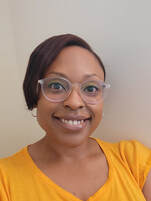 ABOUT KRYSTEN: Krysten Cooper grew up as a disability sibling. She's been working within the disability community for over 15 years in various capacities. A member of Zeta Phi Beta Sorority, Incorporated, She currently serves as a special education advocate and independent facilitator in LA County. 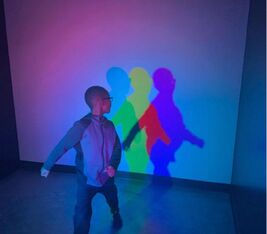 The Stares No matter if you are a parent of one or six children or a parent of a child with autism you are very aware of the infamous stares that accompany tantrum behaviors in public. As a parent the shame, embarrassment, and guilt kick in and then suddenly you think “why did I even come here?” Take a deep breath. Get eye level with your little one and follow these easy steps to prepare you for a smoother outing with your family and friends. Intentionality Parents there is hope, and being intentional about setting your child and family up for success is a vital tool for a successful community outing. Inform your child of the 5 “W’s:” where, why, who, what, and when:
You can conquer the fear of going out in a public setting with your child by preparing to go before you go! This is a strategy that many parents forget so be sure to keep this in your back pocket! While you are riding in the car, reward your child for simple and appropriate behaviors like staying in his/her car seat, having an inside voice or even keeping their feet from kicking the back of your seat. Keep it simple! Social praise such as “I really like how you____, yeah look at you, or I can’t wait to tell grandma how awesome you did” are all valuable social rewards that can potentially increase appropriate behaviors. Your Mental Health Parents, let's not forget you! Staying healthy, getting enough sleep, and taking time to get some fresh air simply are vital in taking care of your children. When your physical, mental, and spiritual self is all functioning at its full capacity, you will have more patience, love, and compassion towards your child/children. Seek help by reaching out to a family member or close friend. Take steps even further by connecting with a counselor to discuss your thoughts and feelings in a safe environment. Take It One Day at a Time All children engage in tantrums. It’s not just your child. You're not alone. There are clinical, licensed, and certified professionals that can help you and your family. Grab a journal, do your research, and find your people that will do more than just stare at you.  For more information about the writer Krisshonda Odufuwa M.Ed., BCBA., LBA., SLP-Assistant is an Autism Expert, Speaker and Writer on topics relating to Neurodiversity You can follow Blue Melo on the following social media platforms: Instagram @bluemelobehaviorchange Tik Tok @Bluemelobehaviorchange Email: letsconnect@bluemelo.com
Long Story Short, We have a lot of work to do, and with your help, we can make change happen. We will be providing links, information and great new content for you through this site and our great participants. Awareness months are important. They help keep you updated on segments of our community that would normally be ignore or dismissed. They help humanize these communities by providing additional information that is needed to create a more inclusive world. Please share our posts, articles and stories the entire Month of April. Our goal is to not only erase the stigma, but to provide people the tools they need to help the children around them. Thank you Monika Brooks, Founder Mocha Autism Network  Monika Brooks is the founder of Oakland's Mocha Autism Network. The goal of the organization is to connect communities of color with autism information and resources.  You probably remember the bright lights, loud noises, and strange tastes of your first dental appointment. You probably felt a little scared but got used to these sensory elements the more you visited the dentist. A child’s first dental visit is important, especially for children with autism because those sensory elements we just mentioned can be more difficult to process for them. Luckily, knowing what to expect at your child’s dental appointment can help you prepare for their appointment and help lessen some anxious feelings your child may have. I have been practicing family dentistry for 17 years and know how important it is for your child to have a positive experience at the dentist office. That’s why I have come up with a list of what you can expect when taking your child to the dentist, and how to prepare to make it a positive experience. 2. Nerves It’s common for anyone to feel nervous at their first dental appointment, so this is expected. There are many great ways to help overcome nerves and sensory issues your child may be feeling to help them at their dental appointment. Practicing at home is one great way to start working through any nerves. Role-playing dental visits at home and telling stories or watching videos about dental checkups have helped many patients I have had throughout the years. There are many different ways to work and prepare for your child’s dental visit, and it may take a while to figure out what works best, but never give up. Do what you can to make going to the dentist a positive experience for your child. Your dentist will be right there beside you helping you along the way. 1. New people Another thing that you will for sure experience at the dentist is meeting new people. As you begin going to the dentist more frequently, you will quickly be getting to know the office and staff members at your dental clinic. If your child is feeling especially nervous towards visiting the dentist, try setting up a familiarization appointment ahead of time for them to visit the dental office. This will give them the chance to meet the office and staff before any work is done. They can also see what the office looks like which will make it more familiar when your child comes back for their appointment. The staff members at your dental office are going to work to make your child’s experience as comfortable as they can. Ask any questions you may have regarding your child’s appointment and let them know ahead of time any special accommodations you’d like to be made. These can include things such as specific toothpaste flavors or reducing waiting room time. Think of you, your child, and your dentist as a team. Teamwork is the best way for your child to have the most positive experience at the dentist. Going to the dentist gives you and your child an amazing opportunity to establish a positive relationship between you guys and the staff at your dental office. They will be working closely with your child so having this relationship is important. 3. Future dental visits Finally, it is extremely important to your child’s overall health to visit the dentist regularly so be prepared to schedule future visits. It’s recommended that your child visits a dentist once every six months. Note that your child’s first visit is going to be the most difficult, but it will become easier with each visit. Make note of what went well during the first visit and what can be improved on. At first, it will be trial and error but enjoy the learning process. One thing that many patients with special needs benefit from is working with the same staff each time. As mentioned before, establishing that relationship with office and staff members will be beneficial in the long run. Your child will be more willing to visit the dentist if they can be around people they are familiar with. It will help ease any anxieties your child may have previously had and make for great and positive dental visits. It’s very common that people experience nerves when they visit the dentist. You probably remember feeling a little scared at your first dental visit, too. However, children with autism often have more difficulties when it comes to visiting the dentist. Thankfully having an idea of what to expect can help you prepare for your child’s appointment. Be sure to keep conversations around the dentist positive and encouraging. Visiting the dentist is a great learning experience for you and your child. Remember that proper dental care is essential to your child’s health and well-being. Embrace learning about the dentist with your child as they begin to overcome their fears and become comfortable at their dental appointments.  About Dr. Grillo: Dr. Grillo spent eight years at the University of Washington and received a bachelor’s degree with honors before attending the School of Dentistry on the same campus.From there he was selected for a Health Professions Scholarship by the United States Navy where he served as a dental officer for four years. While in the navy, Dr. Grillo served tours in South Carolina and Japan, treating families of squadron military members and receiving advanced training in multiple areas of specialized dentistry. He especially enjoys caring for growing families in his practice and remains passionate about incorporating new technologies into his work that enhance the patient experience. Dr. Grillo continues to take numerous continuing education courses on all aspects of dentistry and is also involved in a variety of community activities in the Omak area outside of his work. 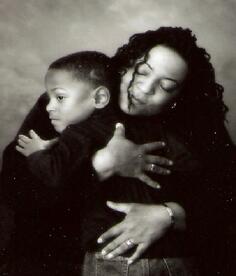 As many of you know, April is observed as Autism Awareness Month in the United States. Through the years autism awareness has increased, but shouldn’t there be more? Aside from being aware of autism in general, maybe we should raise awareness of the downside of exposing ourselves to a world that is still not sure what to do with us. Being surrounded by people who are merely aware of autism isn’t enough. Then again, being around people who are aware of autism may also be too much to bear. In some instances increased awareness drives an even larger wedge between those of us on the autism spectrum and others? Why, because the more knowledgeable people are of our differences, the higher the wall of stigma. stig·ma /ˈstiɡmə/ Noun
Autism Awareness in of itself does not guarantee that we will be considered viable members of society. Autism Awareness does not guarantee that our strengths and weaknesses will be included in the common fabric of humanity. Autism Awareness does not guarantee that we will have equal rights in opportunities for education, employment, and housing nor does autism awareness guarantee that we receive appropriate medical attention, even under the umbrella of whole person-centered care. So why is it so difficult to be aware and accepting of autism? Maybe people don’t know how to accept autism. It’s not rocket science. Autism acceptance is taking the time to get to know us as individuals, recognizing our strengths and challenges, and being thoughtful in diversifying problem-solving; systematically removing barriers to promote seamless inclusion. With acceptance, adaption to differences in ability would become second nature. There is no shame, disgrace or dishonor in having an autism spectrum disorder. Such notions tend to motivate parents to lean towards highly questionable treatments and therapies, a sort of fools gold encapsulated in hope-filled attempts to “cure” autism. There is no cure for autism. Amidst the infinite listings of traits and ubiquitous connotations, one fact still links us together…we are all human. Can that be enough? This year, let us not only look to ways of raising autism awareness but let us also be part of the push to increase autism education and ACCEPTANCE. Jackie Pilgrim She/Her/Hers Mom/Self-Advocate/Disability Advocate/Citizen Organization: The Pilgrimage: Autism's Love email address: autismslove@gmail.com Twitter https://twitter.com/autismslove Facebook: Autism's Love: The Pilgramage  Today is April 1. the day we kick off the Royal Blue for Autism Awareness campaign. We will be providing links, information and great new content for you through this site and our great participants. Its also an election year. So we will be taking on how the politics of Autism Awareness is shaping up. Here's where we are:
We will be talking about both Awareness and Acceptance. We understand that in many communities, "Awareness" is still needed before "Acceptance" occurs. We will also be talking about how Acceptance has to happen in Autism communities that don't include underrepresented communities Long Story Short, We have a lot of work to do, and with your help, we can make change happen. Please share our posts, articles and stories the entire Month of April. Our goal is to not only erase the stigma, but to provide people the tools they need to help the children around them. Thank you Monika Brooks, Founder Mocha Autism Network MOCHA AUTISM NETWORK LAUNCHES 3RD ANNUAL "ROYAL BLUE FOR AUTISM AWARENESS" CAMPAIGN
“Royal Blue for Autism Awareness” campaign to use social media to provide information to underrepresented communities. Oakland, CA: To address the information gap regarding Autism in Areas in need, the Mocha Autism Network has decided to take to Social Media to increase awareness. Called the “Royal Blue for Autism Awareness,” the Oakland organization has teamed up with THE Cooperative Federal Credit Union as well as the Omega Kappa Zeta Chapter of Zeta Phi Beta Sorority, Incorporated to provide information on Autism Spectrum traits and resources to underrepresented communities. The number of children diagnosed on the Autism Spectrum, Studies are on the rise due to new identification techniques. However, people in underrepresented areas are diagnosed last. The goal of this campaign is for supporters to utilize their Electronic Footprint of our to be used to serve the community.” states Monika Brooks, Executive Director of the Mocha Autism Network. Per the Centers for Disease Control, children or adults on the autism spectrum may: avoid eye contact and want to be alone ~ have trouble understanding other people’s feelings or talking about their own feelings ~ prefer not to be held or cuddled, or might cuddle only when they want to ~ appear to be unaware when people talk to them, but respond to other sounds ~ be very interested in people, but not know how to talk, play, or relate to them ~ repeat or echo words or phrases said to them, or repeat words or phrases in place of normal language ~ have trouble expressing their needs using typical words or motions For More information, please go to royalblueforautismawareness.com Established in 2013, the goal of the Mocha Autism Network is to provide awareness, promote advocacy and form alliances among the Autism communities in underrepresented communities. Below are the items shared on April 23The Mocha Autism Network: Empowering Minority Communities With Autism Support
Autism affects 1 in 68 children, regardless of their skin color or ethnic backgrounds. But, responses to the signs of autism vary, especially in minority communities. Monika Brooks, a California mom with a child on the spectrum, founded the Mocha Autism Network to help change perceptions of autism in her community and surrounding ones. More 7 Tips for Helping the Day Go Smoothly Many families struggle to get everyone to school and work on time. This can be particularly tricky if learning and attention issues make it hard for your child to transition from task to task or keep track of time. The following tips can enhance—and ease—your daily routines. More Addressing Inequities in Care for Latino and African American Children with Autism Below are the items shared on April 22 How kicking a trash can became criminal for a 6th grader
Diagnosed as autistic, the sixth-grader was being scolded for misbehavior one day and kicked a trash can at Linkhorne Middle School in Lynchburg, Virginia, in the Blue Ridge Mountains. A police officer assigned to the school witnessed the tantrum, and filed a disorderly conduct charge against the sixth grader in juvenile court. More Teachers Quick to Label Black Students Troublemakers The study showed that teachers tend to view black students more harshly than white students even when their disruptive behavior is exactly the same — possibly triggering a destructive cycle. More Me As a Boy: On Raising an Asian American and Autistic Son Every day we try to figure out the future for Charlie. He is on the moderate-to-severe end of the autism spectrum, minimally verbal (speaking in one to five-word phrases), with numerous cognitive delays—he is unable to read more than a few words and attends a county autism center where he receives vocational training and learns “skills of daily living,” such as washing his face. He can have some extremely severe behaviors of the “textbook autism nightmare without end” sort, including,when extremely agitated, head banging. More Autism Resources for Spanish-Speaking Families When my son Norrin was diagnosed with autism, I was completely lost. The pediatrician who diagnosed him recommended a list of services but offered little hope. I found myself feeling like Alice in Wonderland and I had just fallen down the rabbit hole. Navigating the special education system is complicated. It's been nearly seven years since Norrin's diagnosis and I feel comfortable in searching for resources; I know who to ask and where to look. But like so many parents, in those early years, I spent many hours scrambling, searching and scouring the internet for autism resources. More |

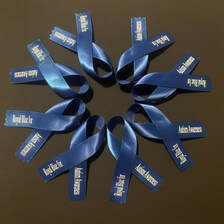
 RSS Feed
RSS Feed